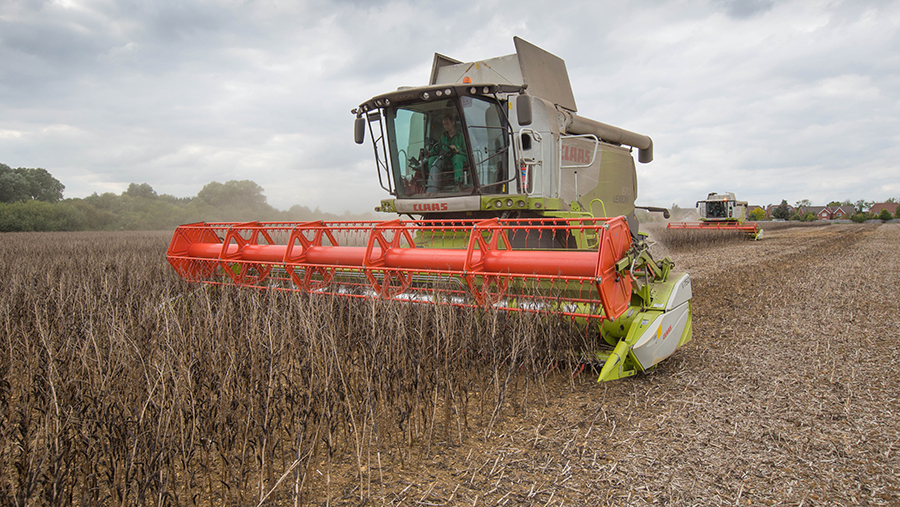Adas launches new pulse crop knowledge exchange platform
 © Tim Scrivener
© Tim Scrivener Pulse growers are being invited to join a new knowledge exchange platform launched by Adas, aimed at helping them grow profitable and resilient crops.
As part of the Nitrogen Climate Smart (NCS) project, Adas has created the Pulse PEP platform, which will host trial results, data and supporting information from experts in the project.
See also: Farmers to reap slice of £5.9m Defra-funded pulse project
NCS is a £5.9m project funded by Defra’s Farming Futures research and development fund, delivered by Innovate UK. The project aims to increase the UK area of pulses from 5% to 20% and cut agricultural emissions.
Dr Thomas Wilkinson, senior research consultant in crop physiology at Adas, says farmers taking part in trials for the NCS project will share data that it is hoped will demonstrate the benefits of growing pulses in rotations.
More than 200 farmers will be involved in either trials, carbon baselining or sharing information, while 17 industry partners will also be contributing their expertise. All of this knowledge will come together on PulsePEP.
The PulsePEP is part of the wider FarmPEP digital platform. It is free to use and anyone can log in to view the content.
Also being launched is a PulsePEP forum area on The Farming Forum, where more in-depth discussions can take place.
Only members will be able to contribute and it gives growers an opportunity to share knowledge and thoughts, says Tom Allen Stevens, founder of the British On-Farm Innovation Network (Bofin), one of the partner organisations.
Guide to patch treating slugs
A new guide is offering farmers up-to-date information on slug behaviour, enabling them to develop cost-effective ways of patch treating slugs.
The Patch-treatment Guide, published by the British On-Farm Innovation Network, provides an overview of research so far and shares practical tips regarding how and why slugs gather in patches.
Keith Walters, professor of invertebrate biology and integrated pest management at Harper Adams University, says there is increasing interest in the potential for targeting pellet applications to hot-spot areas.
“Doing so can deliver benefits to both the environment, wildlife and bottom line.
“However, applying only to certain parts of fields or, more importantly, not treating some areas of the crop, is understandably a bit of a leap of faith and they need confidence in the science behind it to ensure crops are not exposed to unnecessary risk,” he says.
Copies are available at www.slimers.co.uk

